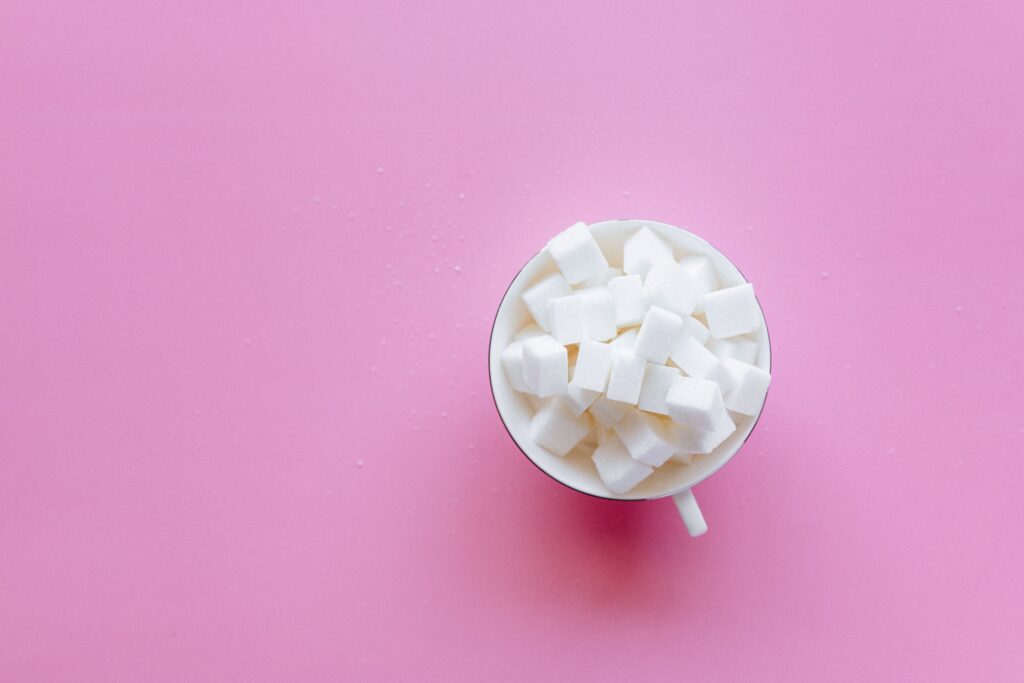
Sugar is often criticized in slimming diets and associated with various health disorders when consumed excessively. However, sugar is an essential component for the proper functioning of the human body. Fortunately, there are numerous alternatives to sugar that can provide different nutrients and flavors. Just like we consume a variety of fruits and vegetables, we can vary and replace sugar in our diet with these healthy substitutes. In this article, we will explore different types of sugar, alternatives to consider, and their benefits.
Understanding Different Types of Sugar
When discussing carbohydrates in nutrition, there are two main types:
- Complex carbohydrates: These include starch, glycogen, and fiber.
- Simple carbohydrates: These are various sugars.
Of the simple carbohydrates, three types are of particular interest:
- Glucose: It is the building block of many other carbohydrates such as starch, sucrose, lactose, and maltose.
- Fructose: It is the primary sugar found in fruit and honey.
- Galactose: It is derived from milk.
In everyday language, the term “sugar” typically refers to “sucrose.” Sucrose is composed of one molecule of glucose and one of fructose. In the food industry, it is primarily derived from sugar beet and sugar cane, making it the main component of table sugars like white sugar and brown sugar.
Different Types of Marketed Sugars
There are various types of sugar available in the market. Here are some commonly used ones:
- Powdered sugar (or caster sugar, white sugar): It is usually derived from sugar beet and is naturally white and unrefined. White cane sugar, on the other hand, undergoes a purification process to remove natural brown pigments.
- Brown sugar: It is an unrefined sugar obtained from sugar cane and can vary in color and flavor.
- Vergeoise: It comes from sugar beet and can be either blond or brown.
- Whole sugars (Rapadura, Muscovado): These unrefined cane sugars undergo no processing during production and retain more vitamins and minerals compared to white sugar.
- Granulated sugar (or pearl sugar, sucre Casson): It is obtained from refined sugar and is used in various baking applications.
- Special jam sugar: This sugar includes natural fruit pectin and citric acid for gelling purposes.
- Vanilla sugar: It contains added vanilla flavor and can be substituted with powdered vanilla or homemade vanilla sugar.
Healthy Sugar Substitutes
To replace sugar in our diet, we can choose alternatives that provide sweetening power along with good nutritional quality. Here are a few options:
- Maple syrup: It has high sweetening power and a distinctive flavor. Maple syrup can be used in place of sugar, with a ratio of 75g of maple syrup to 100g of sugar.
- Honey: Honey is a natural, unprocessed alternative rich in micronutrients. It contains fructose and glucose and can be used in a 1:2 ratio (50g of honey for 100g of sugar). Honey also offers prebiotic and antibacterial properties and contains antioxidants. However, it is not suitable for a vegan diet.
- Wholegrain sugar: This unrefined sugar retains more vitamins and minerals compared to white sugar. It has a more aromatic taste, allowing for a reduced quantity in recipes. A recommended ratio is 50g of wholegrain sugar for 100g of white sugar.
- Coconut sugar: Derived from the sap of coconut palms, coconut sugar is rich in nutrients, has a lower glycemic index, and has a stronger taste than white sugar. A substitution ratio of 70g of coconut sugar for 100g of white sugar is recommended.
Replacing Powdered Sugar
If powdered sugar is used solely for sweetness, it can be replaced with regular sugar or the substitutes mentioned above. However, if the starch content is needed, cornstarch powder or dextrose can be used.
Making Your Own Powdered Sugar
To make powdered sugar at home, grind regular sugar in a blender or mill and sift to remove any remaining crystals. Adding about 1 teaspoon of cornstarch for every cup of ground sugar can help achieve the desired consistency.
Substituting Vanilla Sugar
Vanilla sugar can be replaced with powdered vanilla or by making your own vanilla sugar using vanilla beans and white sugar.
Considerations for Artificial Sweeteners
Artificial sweeteners, such as aspartame and sucralose, are synthetic substances with sweetening properties. While they offer intense sweetness with minimal calories, they lack nutritional value and can perpetuate our taste for sweetness. It is generally advisable to choose “real” sugar alternatives that are natural and unrefined.
Sugar is an essential nutrient for the body, but excessive consumption and low-quality sources can have negative effects on health. By replacing sugar with healthy substitutes like maple syrup, honey, wholegrain sugar, and coconut sugar, we can maintain sweetness in our diet while gaining additional nutrients and flavors. Remember to read food labels carefully and choose natural and unrefined sugar substitutes for a balanced and healthier lifestyle.


